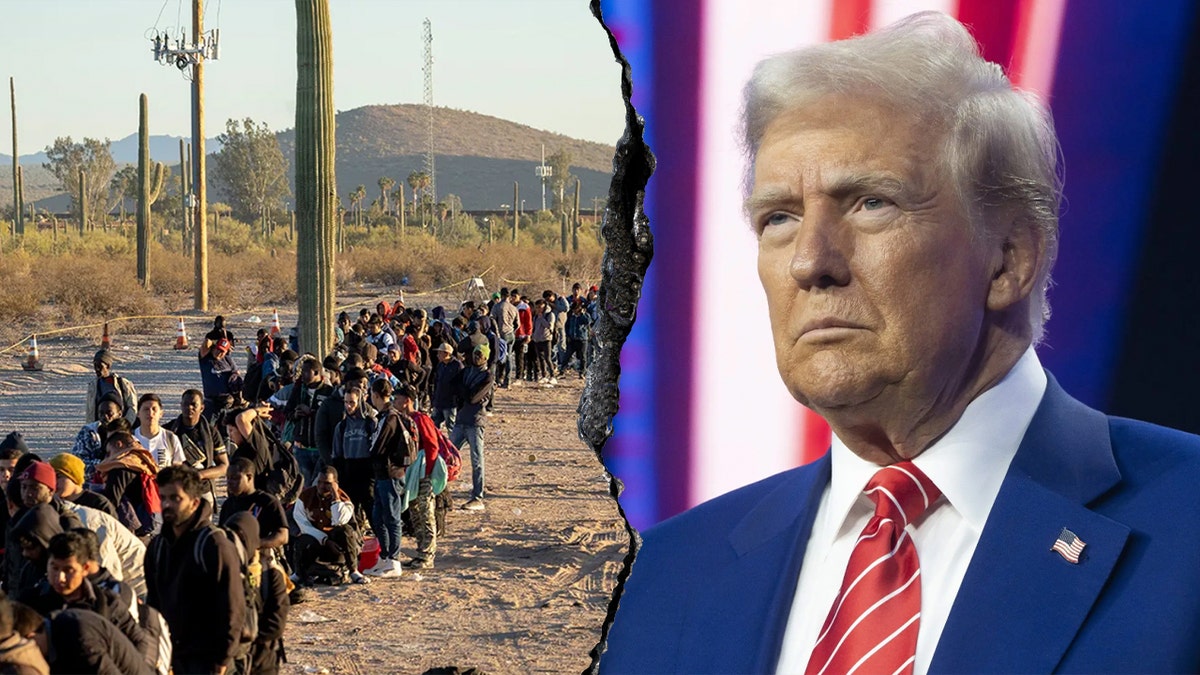
| Published March 24, 2025
Last week, Boasberg issued an order to immediately halt any planned deportations of Venezuelan nationals to El Salvador
The U.S. Court of Appeals for the D.C. Circuit recently heard oral arguments in a significant deportation case involving Venezuelan nationals. The Trump administration has invoked the 1798 Alien Enemies Act to expedite the deportation of individuals alleged to have ties to the Venezuelan gang, Tren de Aragua. This action has led to legal challenges and a temporary restraining order issued by U.S. District Judge James Boasberg, halting the deportations.

The Court of Appeals for the D.C. Circuit will hear oral arguments Monday on whether a lower court can properly address the Trump administration’s efforts to deport Venezuelan nationals via 1798 wartime law. (Getty Images
The administration’s use of the Alien Enemies Act, a law last employed during World War II, has sparked debate over its constitutionality and the balance of powers between the executive and judicial branches. Senator Rand Paul has expressed reservations about this approach, highlighting concerns regarding due process and the applicability of the Bill of Rights to all individuals, not just U.S. citizens.
As the appellate court deliberates, the case underscores ongoing tensions between the Trump administration and the judiciary over immigration policies and the extent of executive authority. Legal experts anticipate that the dispute may escalate to the Supreme Court, potentially setting significant precedents for the application of wartime laws in contemporary immigration enforcement.
Implications of the Venezuelan Deportation Case
The deportation case involving Venezuelan nationals and the Trump administration’s invocation of the 1798 Alien Enemies Act has wide-ranging implications across legal, political, and humanitarian spheres:
1. Legal Precedents on Executive Power
The case could establish new legal precedents on the extent of presidential powers during times of national security concerns. By invoking the Alien Enemies Act, the administration seeks to justify expedited deportations based on alleged threats, which could expand executive authority if upheld. However, a ruling against the administration may reinforce judicial checks on executive overreach.
2. Impact on Immigration Law and Policy
If the appellate court rules in favor of the administration, it could reshape immigration policy by allowing the expedited deportation of individuals based on perceived national security threats. This may lead to broader applications of similar wartime laws in immigration enforcement, affecting asylum seekers and other vulnerable groups.
3. Erosion of Due Process Protections
Critics argue that using the Alien Enemies Act risks undermining due process protections. Deporting individuals without comprehensive hearings could set a precedent that limits the rights of non-citizens, sparking concerns among civil liberties advocates and immigration rights groups.
4. Political Ramifications
The case has fueled partisan divisions, with conservative voices supporting the administration’s tough stance on immigration and liberals warning against the erosion of constitutional rights. This issue could become a rallying point in upcoming political debates, particularly regarding national security and immigration policy.
5. Diplomatic Consequences
Targeting Venezuelan nationals may also have diplomatic repercussions. It could strain U.S.-Venezuela relations further or impact how the U.S. is perceived by allies and international human rights organizations, especially given concerns about the humanitarian crisis in Venezuela.
6. Potential Supreme Court Showdown
Given the constitutional questions at stake, the case could escalate to the Supreme Court. A high court ruling would have lasting implications for the balance of power between the executive branch and the judiciary, particularly regarding the use of historical wartime laws in modern immigration enforcement.
Overall Takeaway
The Venezuelan deportation case involving the Trump administration’s use of the 1798 Alien Enemies Act highlights the complex tension between national security, executive authority, and individual rights. While proponents argue that swift deportations are necessary to address security threats, critics warn that bypassing due process could set a dangerous precedent, eroding constitutional protections for non-citizens. The case’s outcome could significantly impact U.S. immigration policy, shaping how historical laws are applied in modern contexts and redefining the balance of power between the executive branch and the judiciary. Ultimately, this legal battle underscores broader debates on the limits of government authority, civil liberties, and America’s approach to immigration enforcement in a polarized political environment.
SOURCES: FOX NEWS – Court of Appeals to hear oral arguments in high-profile deportation suit involving Venezuelan nationals
REUTERS – Trump officials defend use of wartime law to deport migrants
POLITICO – Rand Paul avoids supporting Trump use of the Alien Enemies Act
THE WALL STREET JOURNAL – Trump Turns Fight Over Deportation Flights Into a Constitutional Showdown


Be the first to comment